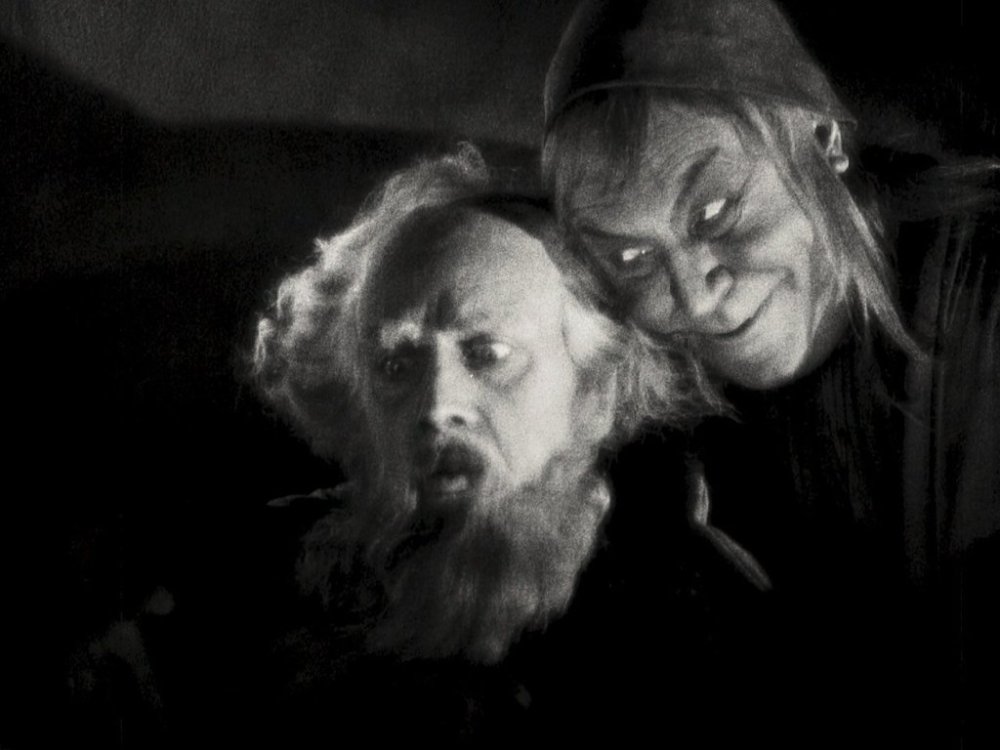World
Hollywood’s Enduring Fascination with Faustian Bargains

The release of “Him,” a new horror film produced by Jordan Peele, highlights Hollywood’s long-standing obsession with the theme of making deals with the devil. This cinematic trope, which has captivated audiences for nearly a century, draws inspiration from F.W. Murnau’s acclaimed silent film “Faust,” which premiered in 1926. The ongoing exploration of this theme reflects a deeper cultural fascination with morality, ambition, and the consequences of choices.
The Story Behind “Him”
“Him,” set to debut in theatres, tells the story of Cameron Cade, portrayed by Tyriq Withers, an aspiring professional football player. Cade receives an invitation to train at a secluded facility run by renowned quarterback Isaiah White, played by Marlon Wayans. As the narrative unfolds, Cade grapples with the question that haunts him: “What are you willing to sacrifice?”
Julia Fox, who plays White’s wife, offers insight into the film’s thematic core. She explains that the notion of selling one’s soul is less about a literal transaction and more about the moral compromises we make for success. “Selling your soul to the devil is a metaphor for selling out and doing things that you don’t want to do, compromising your morals and values for a paycheck,” she stated.
A Cinematic Legacy of Faustian Themes
Faustian narratives, much like “Him,” have often been categorized as horror films, blending supernatural elements with tales of ambition. The genre encompasses a wide range of adaptations, including the 2005 film “Constantine,” starring Keanu Reeves, and the romantic comedy “Bedazzled,” featuring Brendan Fraser. Each of these films explores the allure of wealth, fame, or power through the lens of a devilish pact.
“It’s pretty much everywhere once you start looking,” noted Kirsten Thompson, a professor of film studies at Seattle University. “We all want to have eternal life or youth or power or status. The various iterations of the myth sometimes emphasize different things.” For example, “Damn Yankees,” a 1958 film adaptation of the Broadway show, shares a similar Faustian narrative set in the world of sports.
Murnau’s “Faust” stands out among earlier adaptations, not because it is the first, but due to its significant impact on the film industry. The film features striking visuals and narrative depth that have influenced countless filmmakers. “The film has these very striking set pieces that are, visually, enormously iconographic and influential on subsequent silent cinema, including American cinema,” Thompson explained.
The themes explored in “Him” resonate with the quest for eternal youth, a central motif in both Murnau’s classic and contemporary sports narratives. Director Justin Tipping emphasizes the urgency behind athletes’ actions, stating, “Essentially, what’s behind all these athletes’ actions is they’re trying to stop time.” The film embraces its Faustian elements through overt references, illustrating the character’s struggles with ambition and morality.
“There are a lot of references. Maybe too — there’s a lot. But they all served, I think, the emotional arc for our characters and the themes that I was going after,” Tipping remarked, indicating the depth of the narrative’s exploration of Faustian elements.
Hollywood’s fascination with these themes is not new. The concept of a human striking a deal with a demonic force has roots in various cultural beliefs, particularly within Christian theology. Joseph Laycock, a professor at Texas State University who studies Satanism, notes that the idea is prevalent across many cultures, with demons offering power in exchange for souls.
The Faust legend as we know it emerged during the Reformation, a period that saw a surge in interest surrounding possession and witch-hunting. It was during this time that the narrative gained traction, leading to significant adaptations, including Johann Wolfgang von Goethe‘s influential two-part play in the 1800s. This adaptation transformed the Faust story into a literary titan, comparable to the works of Shakespeare.
The title of Tipping’s film, “Him,” cleverly alludes to modern sports slang. The phrase, used by notable athletes like LeBron James, signifies greatness and has cultural resonance. Additionally, the acronym “H.I.M.” could evoke associations with darker themes, although Tipping playfully refrained from confirming this interpretation.
As “Him” prepares for its release, it joins a long line of films that explore the complexities of ambition and morality through the lens of Faustian bargains. Whether through horror, comedy, or drama, these narratives continue to captivate audiences, reflecting a timeless struggle between desire and consequence.
-

 Science3 months ago
Science3 months agoToyoake City Proposes Daily Two-Hour Smartphone Use Limit
-

 Top Stories3 months ago
Top Stories3 months agoPedestrian Fatally Injured in Esquimalt Collision on August 14
-

 Health3 months ago
Health3 months agoB.C. Review Reveals Urgent Need for Rare-Disease Drug Reforms
-

 Technology3 months ago
Technology3 months agoDark Adventure Game “Bye Sweet Carole” Set for October Release
-

 World3 months ago
World3 months agoJimmy Lai’s Defense Challenges Charges Under National Security Law
-

 Lifestyle3 months ago
Lifestyle3 months agoVictoria’s Pop-Up Shop Shines Light on B.C.’s Wolf Cull
-

 Technology3 months ago
Technology3 months agoKonami Revives Iconic Metal Gear Solid Delta Ahead of Release
-

 Technology3 months ago
Technology3 months agoApple Expands Self-Service Repair Program to Canada
-

 Technology3 months ago
Technology3 months agoSnapmaker U1 Color 3D Printer Redefines Speed and Sustainability
-

 Technology3 months ago
Technology3 months agoAION Folding Knife: Redefining EDC Design with Premium Materials
-

 Technology3 months ago
Technology3 months agoSolve Today’s Wordle Challenge: Hints and Answer for August 19
-

 Business3 months ago
Business3 months agoGordon Murray Automotive Unveils S1 LM and Le Mans GTR at Monterey









